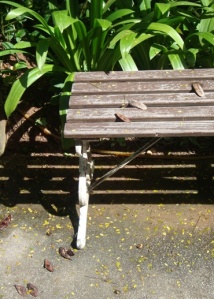 Mohd Ashraff is 37 years old. He works as a counsellor, and lives with his partner.
Mohd Ashraff is 37 years old. He works as a counsellor, and lives with his partner.
I remember him
 Tarry, in his mid-thirties, works in the IT industry. He likes to keep up-to-date with his electronic gadgets.
Tarry, in his mid-thirties, works in the IT industry. He likes to keep up-to-date with his electronic gadgets.
I have a photo of his tombstone here on my handphone. Here, you can see it. I took it recently.
The very first time I met Nasir was at the SAFRA gym in Toa Payoh. He approached me and we exchanged phone numbers. He rang me later and we went to a hotel where we spent the night. The next morning, I called but never heard from him in return.
He was my first sexual partner, and I was naïve. I thought something had happened to him, as I didn’t know that some people would have sex with you and totally ignore you afterwards. I was pretty worried for days but there was nothing I could do, with no other ways to contact him as he wasn’t answering my calls and didn’t respond to my messages.
So after a while I just forgot about him, and started going out with someone else. We spent a lot of time together, but when it came to the crunch he said he wasn’t ready for a relationship, and not long after that, we stopped seeing each other. And just when I was most upset, I met Nasir again, a year after our first meeting. Because I was feeling so down, he decided to invite me to spend time with him in Kuala Lumpur. I don’t remember what we did there, but on the train ride back to Singapore, he asked me to be his steady boyfriend.
It was a rocky, roller-coaster kind of relationship. We would fight a lot, scold each other, then talk on the phone again and make up and cry over it. There were a lot of highs and lows. Since then, all my subsequent relationships have been less emotional and dramatic. There has not been any passion since Nasir. They were just very comfortable relationships.
* * *
My memory is really bad, but I guess there are some things that you just don’t forget.
This year is the tenth anniversary of Nasir’s death.
He was an air steward, and had been flying for around two, three years when I met him. Less than a year after we started getting together, he told me that he was afraid of flying, which obviously wasn’t normal for someone in his job. He said he would feel really scared and shiver on board, and couldn’t really explain why it was happening. He showed me a letter from an overseas doctor and told me he had depression. I can’t remember if he was on any medication, but he was afraid of seeing a local doctor for fear of losing his job.
I didn’t know much about depression at the time, and how serious it was for him. I suggested that he change his career and even helped him apply for a fitness instructor course with the Singapore Sports Council. I think he attended the first lesson a couple of weeks before his death, and whenever we met he would tell me he was feeling depressed but was trying to control it. A week before his birthday I went and bought him a present, a mattress which was to be delivered to his home.
Then one morning, a few days before his birthday, I received a call from his dad who sounded really upset over the phone. The police had just called to say they found Nasir’s body. His dad was not sure what was happening, and asked if I could go over immediately to talk to the police.
I couldn’t believe what I had heard. I kept hoping it was a joke, that there was some misunderstanding or mistake. As I drove from Toa Payoh where I lived, down to their flat in Bedok, I was telling myself that even if it was all true, perhaps he was injured. It couldn’t be happening.
At the time I didn’t know that would be the start of three months of intense drama. I remember waiting for the police to tell us what happened. This is what we were told: earlier that morning, some kids playing at the void deck heard a loud bang, and found Nasir’s body on the ground.
Apparently he had jumped to his death.
I was in a state of disbelief.
Then the police had to interview us, and wanted to look through his things. I thought there was no point hiding further, and told them that I was his boyfriend. As they went through his stuff I just answered whatever questions they asked. After that they sent the body to the mortuary at the Singapore General Hospital, and I went with his parents to identify it.
Muslim custom requires that the body be buried within the same day, and the funeral is usually held on the evening of a person’s death. I made a few telephone calls to his friends to inform them, and some of them came over. I didn’t know many of them, but I was able to recognise some.
Then, most unexpectedly, the mattress I bought for his birthday was delivered during the funeral itself. You can imagine how that upset everyone even more.
* * *
Above all, I was haunted by that one big question: “Why did he jump?” I didn’t know if it had anything to do with the depression. We tried to figure out what happened – did somebody push him off? Was he up there that night to meet someone? Was he troubled over our relationship?
Sometimes I wouldn’t even know how to describe the feeling I had inside. There were no words for it. I would be asking myself questions like: What happened? What did I miss?
Why did it happen?
Although I’m not a religious person, I always hoped that he would come back as a spirit to talk to me and tell me what happened, and explain why he killed himself.
* * *
I think what really helps people to move on is time. Some people require more time, some less. From my personal experience, one way to cope with losing someone is to just remember your time with them. You soon realise that people come and go, through death or other ways. Basically life is just full of memories. Just remember them, however you want to do so, and try to move on with your life. You can choose how you want to put those memories to good use and to cherish them. Some people do significant things in the name of their loved ones who have passed away. Different people do different things. The idea is that you try to move on, and you will, eventually.
Although I didn’t do anything special in Nasir’s name, I just remember him. Like talking about it now, this is my way of remembering him.
* * *
The above are excerpts from Tarry’s full story, which can be read in the book.
A double closet
 Lance is in his forties. He works as a consultant and often has to travel overseas for his job.
Lance is in his forties. He works as a consultant and often has to travel overseas for his job.
